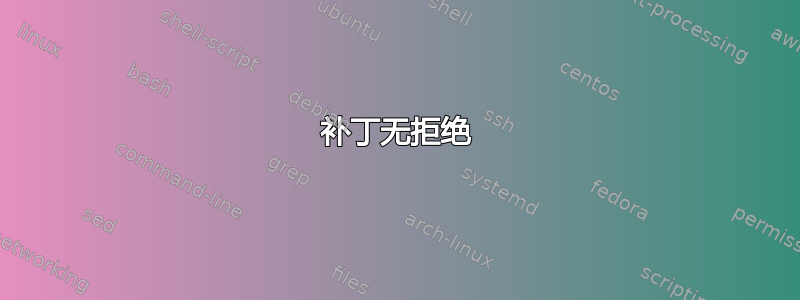
这个问题可能已经有了答案,但很难搜索——基本上,
当patch发现某个块/块无法申请时,它将拒绝更改的块到拒绝文件中。
如何不将冲突放入拒绝文件中而是包含在最终输出中,只是当git发现冲突时在最终输出中包含两个版本:
$ cat merge.txt
<<<<<<< HEAD
this is some content to mess with
content to append
=======
totally different content to merge later
>>>>>>> new_branch_to_merge_later
答案1
GNU 补丁有一个--merge选项:
--merge or --merge=merge or --merge=diff3
Merge a patch file into the original files similar to diff3(1)
or merge(1). If a conflict is found, patch outputs a warning
and brackets the conflict with <<<<<<< and >>>>>>> lines. A
typical conflict will look like this:
<<<<<<<
lines from the original file
|||||||
original lines from the patch
=======
new lines from the patch
>>>>>>>
The optional argument of --merge determines the output format
for conflicts: the diff3 format shows the ||||||| section with
the original lines from the patch; in the merge format, this
section is missing. The merge format is the default.
This option implies --forward and does not take the --fuzz=num
option into account.
奇怪的是我找不到这个GNU diffutils 文档(在哪里其他patch选择已记录)。


